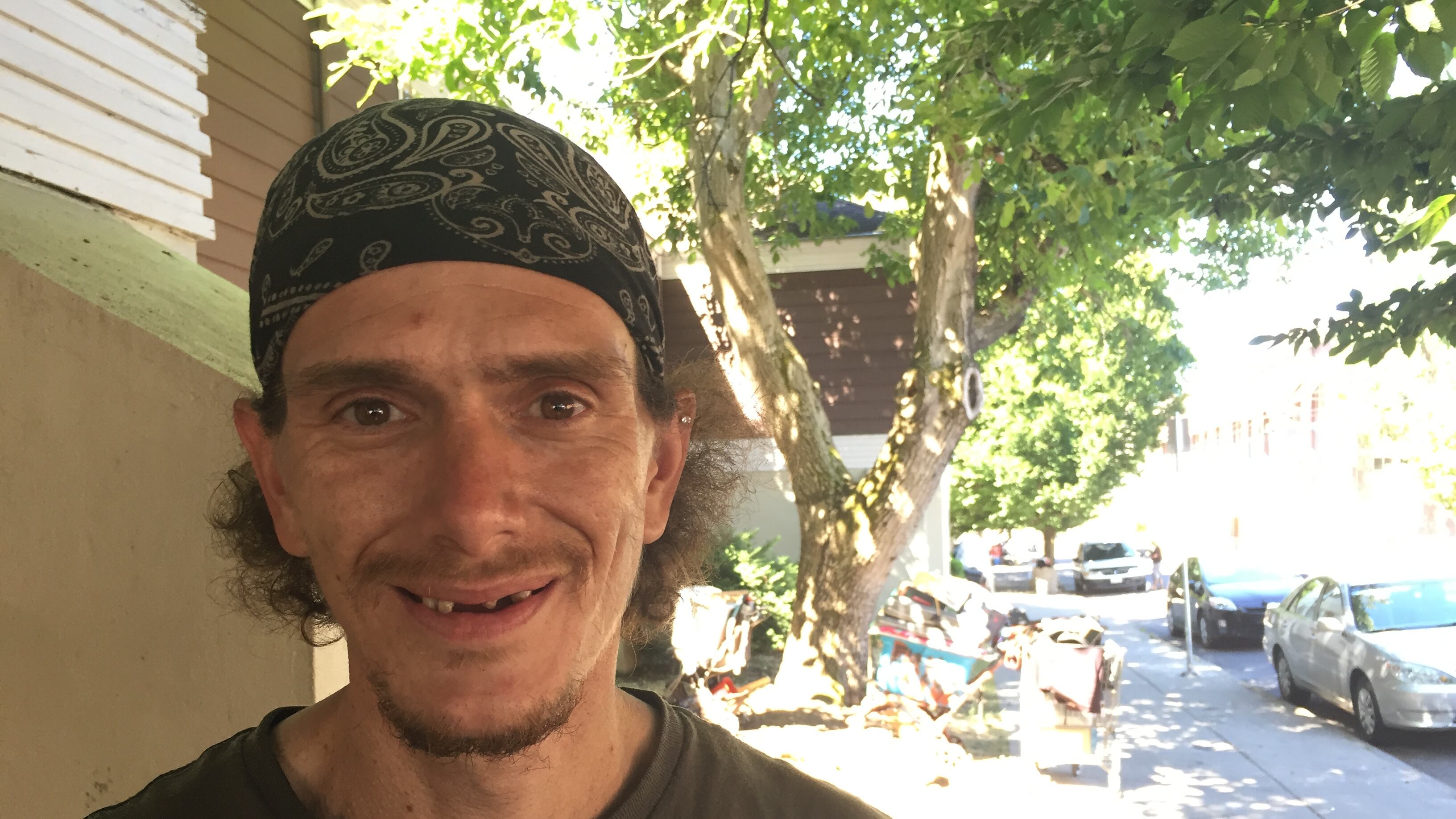Timothy Allen Ferrell is the kind of person officials and advocates argue about.
Despite a lifelong history of trauma—born with drugs in his system to a 15-year-old mom, then foster care, heroin and meth use, and drug-related criminal convictions—Ferrell insists homelessness is his choice.
"Being in a house is stasis—you're stuck there," says Ferrell, 42, who uses the street name Damian. "I wander out of apartments."
Ferrell is Native American: an enrolled Yakama Nation member who lives in a tent outside St. Francis of Assisi Catholic Church in Southeast Portland. And he explicitly connects his homelessness to his heritage.
He recalls the words of his great-grandmother Ida Nason, a Wenatchi elder featured in a 1986 University of Washington documentary: "You have the right to wander—by blood, by right."
Other Native Americans in Portland tell a different story: They're houseless not by choice, but because they've been cut off from help from their tribes and government agencies.
Ferrell is among 424 Native Americans who are homeless in Multnomah County this year. That's 10 percent of homeless people in the county—a hugely disproportionate number. (Native Americans make up just 2.5 of the county's population.)
Overall, people of color made up 40.5 percent of this year's count, slightly higher than in 2015. But Native Americans are now homeless at a rate that far exceeds any other racial or ethnic group in Portland.
Why is that?
Executive director Paul Lumley of the Native American Youth and Family Center points to social ills that have long afflicted native people. But he also says those scourges are made worse by geography: Native Americans who leave reservations to live in cities are separated from a social safety net and government money that often flows through tribal leadership.
"No tribe will come to anybody's rescue in the urban area," Lumley says. (Officials at the Siletz, Grand Ronde and Warm Springs tribes didn't return calls requesting comment.)
Lumley knows a thing or two about native houselessness. A Yakama citizen like Ferrell, he was homeless as a teenager, "living on the Columbia River fishing for a living [and] not doing a very good job of it."
He had to bum a ride to an interview at the Columbia River Inter-Tribal Fish Commission, he recalls, and "showered" in a rest-stop sink on the way.
"I was really conscious about how I smelled when I went in there, because I came from the river," he says, with a laugh. He doesn't laugh when he mentions he was denied basic services by both tribe and state.
It's a story echoed by Ferrell's friend Susan McIntire, an enrolled Sault Ste. Marie Chippewa who goes by Oracle. McIntire is living in a Chevrolet Astro minivan decorated with teddy bears and art supplies.
"You're not getting the resources or help from the different Indian agencies," she says. "Even on the reservations, there's no housing there."
For her, as for Lumley, the services have been scarcest when she needed them most. "When I was in [a] bad wreck in '82 and needed a wheelchair, even the native groups couldn't get me a wheelchair," she says. "Not the state or county or anybody."
Now McIntire, 64, survives on Social Security and a $500 annual "elder check" from her tribe, "if they decide not to spend it on something else." (For his part, Ferrell gets a check from the Yakama of $127 a month, he says.)
Officials at the city-county Joint Office of Homeless Services hope to do something to cut into the Native American numbers—as they did when they prioritized black people after the 2015 count, which found 24 percent of homeless people at the time were African-American. (In two years, they lowered that number to 16 percent.) On July 14, the office released a notice saying it would make as much as $1.9 million available for programs that help reduce Native American homelessness numbers.
Outside St. Francis church, Ferrell and McIntire watch each other's backs, and were recently heartened by the installation of a new Portland Loo. But they still struggle. Ferrell's Yakama tribal ID isn't accepted by local businesses and some government agencies, and McIntire's dog Buddy was removed by county animal services.
Ferrell's short-term plan involves the Native American Rehabilitation Association, which runs the only Native American dental clinic in the metro area.
"Very soon I'm going to hit up NARA," he says. "I need teeth."

Down and Out in Portland, Oregon is a weekly column that answers the city's most pressing questions about homelessness by taking them to the people who know the issue best: those living on the streets. Look for a new installment weekly throughout the summer.
